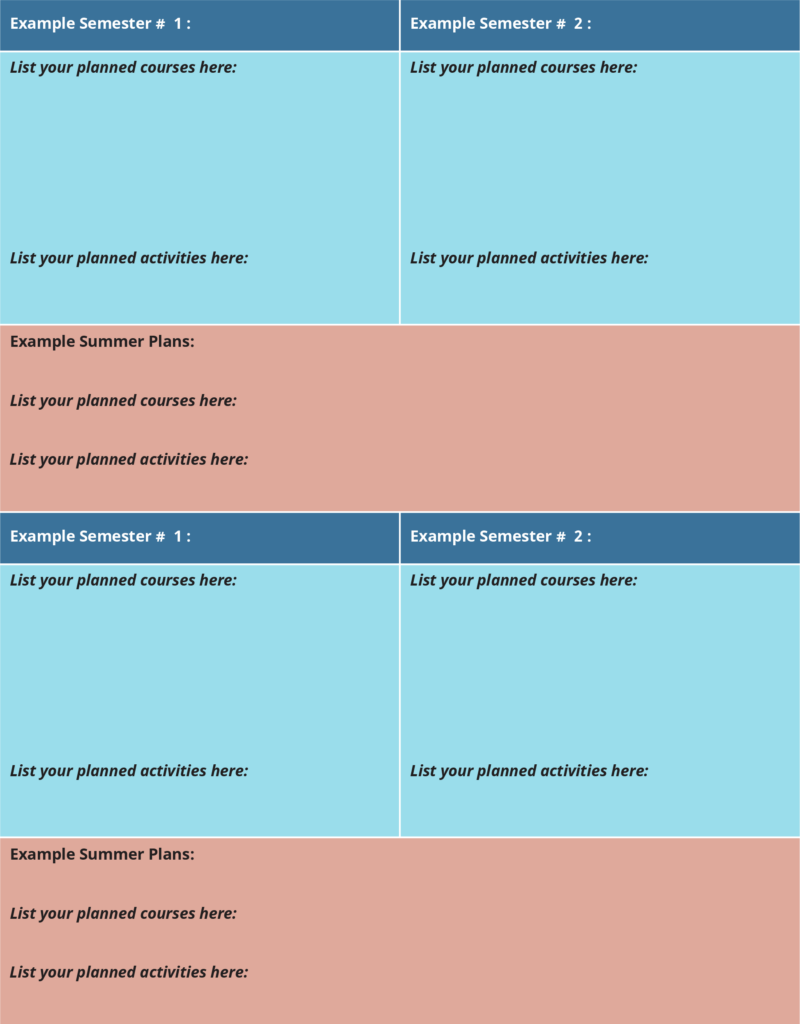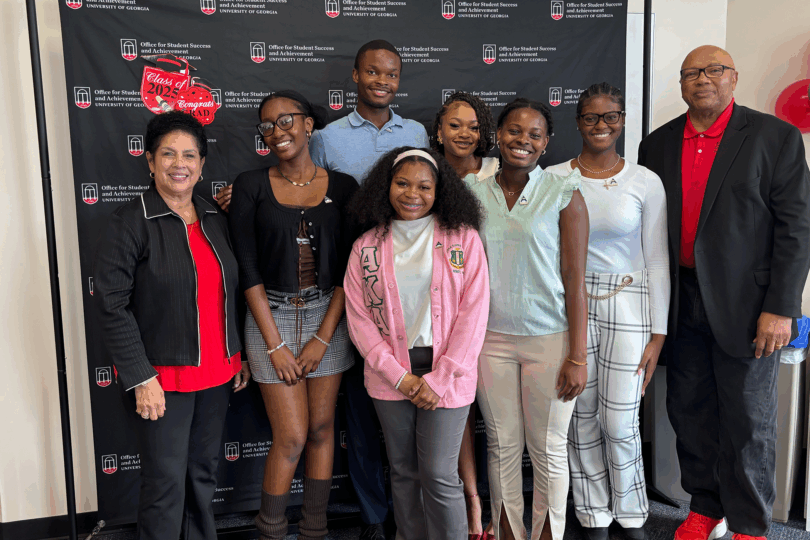Though we’ve discussed planning in a great degree of detail, the good news is that you don’t have to have it all figured out in order to be successful. You can still put a puzzle together picture-side down by fitting together the pieces with trial and error. Similarly, you can absolutely be successful in your academic and career life even if you don’t have it all figured out. You may have to take things a little slower, but that will be ok. It will be especially important to keep this in mind as circumstances change or things don’t go according to your original plan. Try to envision your academic path like climbing a mountain – you will need specific equipment and tools for it to be easier on you (physically and mentally), you will need to take periodic breaks to rest (again, physically and mentally), and your goal is to finish what you started and in doing so you are not racing against anyone else. Reaching the top of the mountain and reaching your graduation are great accomplishments and you know the pace that is right for you.
Expecting Change
After you’ve devoted time to planning, it can be frustrating when circumstances unexpectedly change. Change can be the result of internal or external factors. Internal factors are those that you have control over. They may include indecision, or changing your mind about a situation after receiving new information or recognizing that something is not a good fit for your values and goals. Though change resulting from internal factors can be stressful, it is often easier to accept and to navigate because you know why the change must occur. You can plan for a change and make even better decisions for your path when the reason for change is, simply put—you!
External factors that necessitate change are often harder to plan for and accept. Some external factors are very personal. These may include financial concerns, your health or the health of a loved one, or other family circumstances. Other external factors may be more related to the requirements of a major or college. For example, perhaps you are not accepted into the college or degree program that you had always hoped to attend or study. Or you may not perform well enough in a class to continue your studies without repeating that course during a semester when you had originally planned to move on to other courses. Change caused by external factors can be frustrating. Because external factors are often unexpected, when you encounter them you’ll often have to spend more time changing your plans or even revising your goals before you’ll feel as though you’re back on track. You have already experienced this on some level with your Academic Suspension and returning to the University after a semester away. But you have grown so much from that experience and are ready to face these new challenges and obstacles in your academic path, but now knowing where to turn for help.
Managing Change
It is important to recognize that change, whether internal or external, is inevitable. You can probably think of an example of a time when you had to change your plans due to unforeseen circumstances. Perhaps it’s a situation as simple as canceling a date with friends because of an obligation to babysit a sibling. Even though this simple example would not have had long-term consequences, you can probably recall a feeling of disappointment. It’s okay to feel disappointed; however, you’ll also want to recognize that you can manage your response to changing circumstances.
You can ask yourself the following questions:
- What can I control in this situation?
- Do I need to reconsider my values?
- Do I need to reconsider my goals?
- Do I need to change my plans as a result of this new information or these new circumstances?
- What resources, tools, or people are available to assist me in revising my plans?
When encountering change, it helps to remember that decision-making and planning are continuous processes. In other words, active individuals are always engaged in decision-making, setting new plans, and revising old plans. This continuous process is not always the result of major life-changing circumstances either. Oftentimes, we need to make changes simply because we’ve learned some new information that causes a shift in our plans. Planning, like learning, is an ongoing lifetime process.
Asking for Help
Throughout this course we have made mention of individuals who can help you plan your path, but noted that your path is ultimately your own. Some students make the mistake of trying to incorporate too much advice when planning and making decisions. They may forgo their values and goals for others’ values and goals for them. Or they may mistakenly trust advice that comes from well-meaning but ill-informed sources.
In other cases, students grapple with unfamiliar college paperwork and technology with little assistance as they proudly tackle perhaps newfound roles as adult decision makers. It’s important to know that seeking help is a strength, not a weakness, particularly when that help comes from well-informed individuals who have your best interests in mind. When you share your goals and include others in your planning, you develop both a support network and a system of personal accountability. Being held accountable for your goals means that others are also tracking your progress and are interested in seeing you succeed. When you are working toward a goal and sticking to a plan, it’s important to have unconditional cheerleaders in your life as well as folks who keep pushing you to stay on track, especially if they see you stray. It’s important to know who in your life can play these roles.
This material is adapted from College Success – an Openly Licensed textbook on how to succeed in college. Chapter 4.




